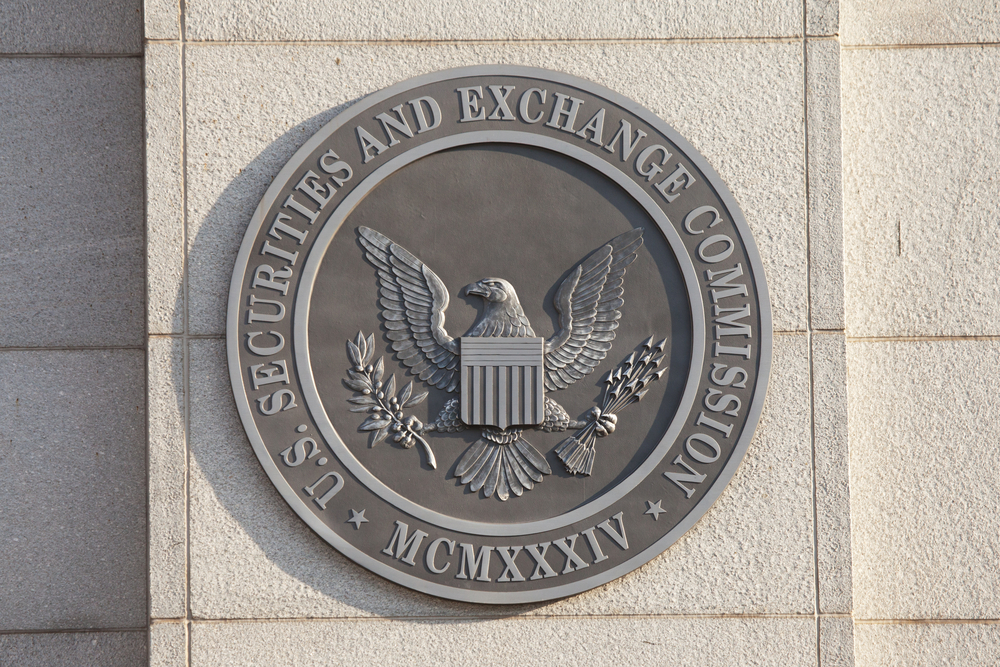 The SEC’s Asset Management Advisory Committee (AMAC) has issued a series of recommendations to enhance disclosures of environmental, social and governance and diversity and inclusion factors.
The SEC’s Asset Management Advisory Committee (AMAC) has issued a series of recommendations to enhance disclosures of environmental, social and governance and diversity and inclusion factors.
The nonbinding recommendations, which were approved by the AMAC on July 7, were developed over the past year by the ESG Subcommittee to create “better transparency for investors and better verifiability of investment products’ ESG strategies and practices.”
The AMAC also approved a series of recommendations by the Diversity and Inclusion Subcommittee related to enhanced disclosures in SEC filings on issues of diversity in the workforce, officer ranks and ownership ranks of advisory firms. Formed to provide the Commission with diverse perspectives on asset management and related advice and recommendations, the committee is comprised of outside experts, including individuals representing the views of retail and institutional investors, small and large funds, intermediaries and other market participants.
SEC Agenda
The AMAC’s recommendations come as the Commission embarks on a parallel track to address registrant disclosures regarding issuers’ climate-related risks and opportunities. The SEC’s spring regulatory agenda released in June confirmed that the Commission plans to release a proposed rule by October 2021 addressing climate-related disclosures. More specific to the AMAC’s recommendations, the SEC also plans to issue proposed requirements by April 2022 for investment companies and investment advisers related to ESG factors, including ESG claims and related disclosures.
As part of opening remarks at the meeting, SEC Chairman Gary Gensler offered some insight on his plans for rulemaking. On sustainability in relation to fund disclosures and fund names, Gensler suggested that the basic idea is truth in advertising. “Many funds use terms like ‘green’ or ‘sustainable.’ Even though those terms are a little less objective than ‘fat-free’ milk, still, those labels say a lot to investors,” Gensler noted. “I think investors should be able to drill down to see what’s under the hood of these funds,” the SEC Chairman emphasized.
Gensler further suggested that there isn’t a standardized meaning of these sustainability-related terms, and noted that he has asked staff to consider recommendations about whether fund managers should disclose the criteria and underlying data they use. This work, he noted, will take place in concert with the agency’s ongoing efforts to update the public company disclosure regimes on climate risk and human capital.
Gensler also advised that he has asked the staff to look at naming conventions by third-party service providers that offer tools, such as ratings, which often make sustainability-related claims as well.
Issuer Disclosure
As to the AMAC’s recommendations, in the case of Issuer Disclosure, the committee recommends the SEC take steps to foster “meaningful, consistent, and comparable disclosure” of material ESG matters by issuers. The AMAC does not contemplate revising the materiality standard requirement that has guided issuers in determining whether disclosure of a matter is warranted. Rather, the recommendation acknowledges that ESG is a developing concept and therefore issuers’ determination of materiality and definition of material ESG matters can vary.
The AMAC says that it concurs with views that having “clear, consistent and comparable” issuer disclosure of material ESG matters across industries would be desirable, but notes there are challenges to achieving that goal in the near future. First, it notes that ESG metrics are still evolving, and a rule-based disclosure framework regime may not capture all new information and subsequent developments. Second, it notes that mandated disclosures also raised questions about the practicality of setting disclosure requirements on certain ESG factors where it can be difficult to prove the disclosure is material to the issuer’s financial statements.
The AMAC ultimately concluded that it was premature to recommend specific mandated disclosure of material ESG matters through SEC rulemaking or required adoption of third-party standards. Nevertheless, the AMAC believes there is a need for the SEC to implement a process for enhancing ESG disclosures that issuers make to investors. The recommendations further suggest that any such regulation should be principles-based, consistent with the approach the SEC has traditionally taken to matters where issuers must exercise discretion in determining whether they would be relevant and important to investors.
The AMAC also recommended the SEC initiate a study of third-party ESG disclosure frameworks for the disclosure of material ESG matters to assess whether the frameworks could play a more authoritative role in the future.
Investment Product Disclosure
In the case of Investment Product disclosure, the AMAC supports the use of best practices aligned to a more uniform terminology. Here, the AMAC recommends that the SEC should suggest best practices to enhance ESG investment product disclosure, including alignment with the taxonomy developed by the Investment Company Institute ESG Working Group.
This also would include a clear description of each product’s strategy and investment priorities, including nonfinancial objectives such as environmental impact or adherence to religious requirements.
As part of its review, the AMAC notes that it considered a range of potential recommendations, from taking no action to mandating particular actions. The AMAC concluded that action in support of best practices would improve transparency for investors. It also noted that more prescriptive actions could be counterproductive given that ESG investing is still evolving and that “strong rulesets might, at this point, freeze development of investment and measurement approaches in this investing style.”

